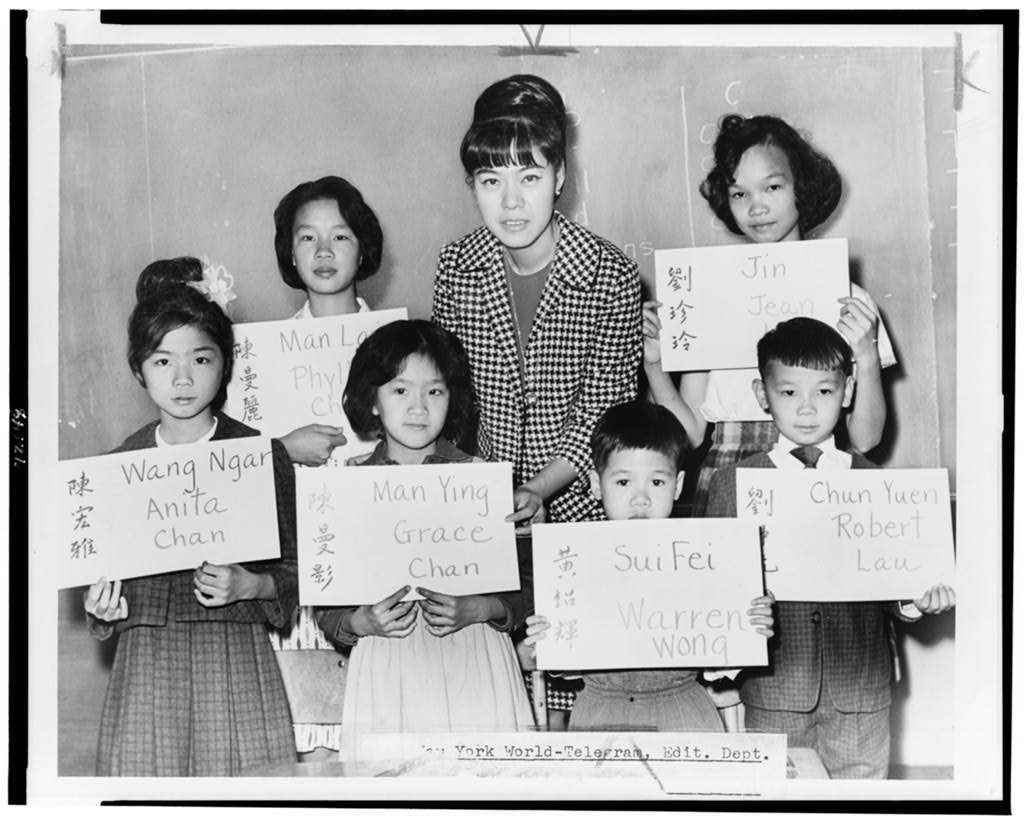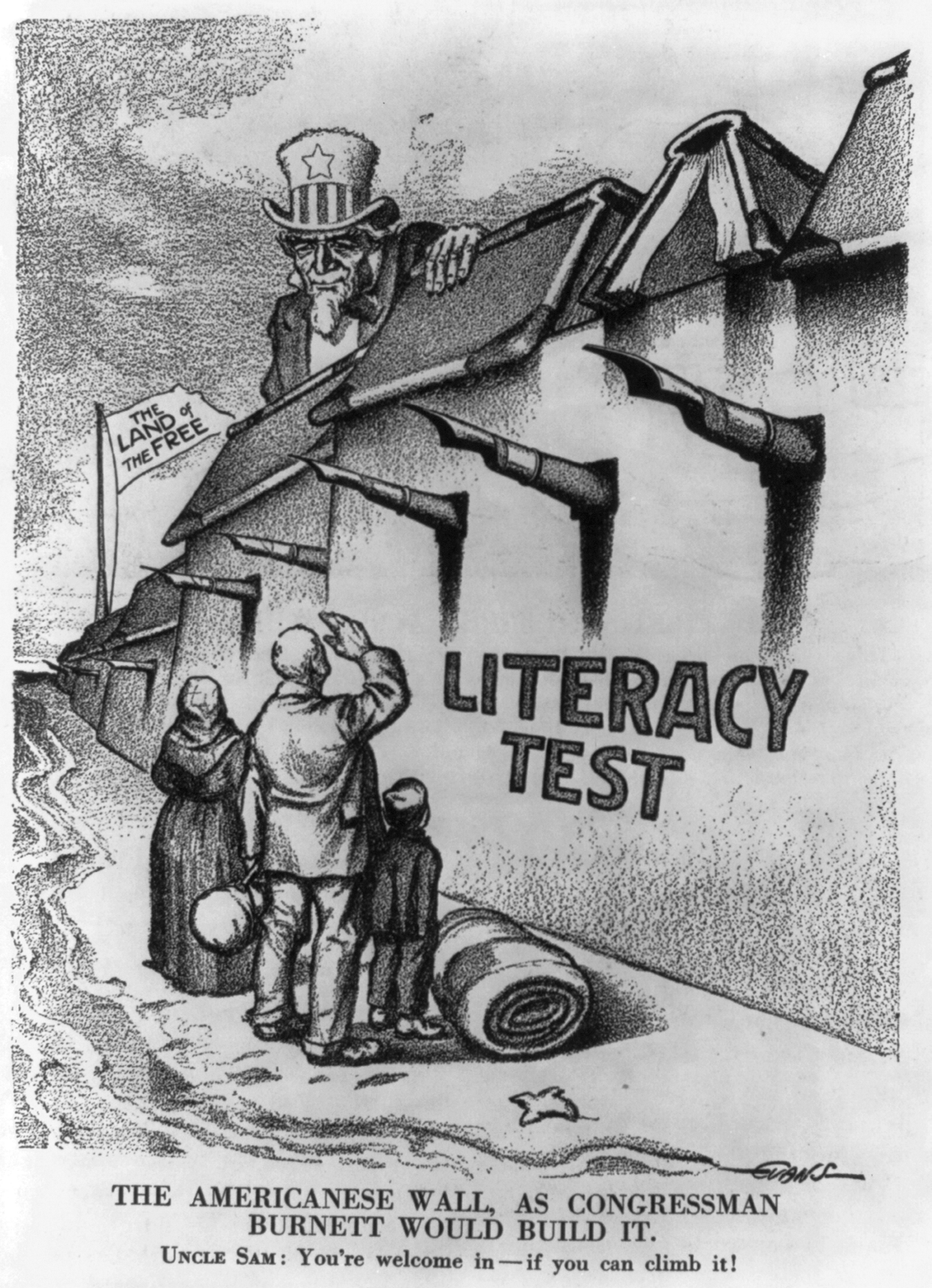
IMMIGRANT HISTORY THROUGH PRIMARY SOURCES
The Emerging America – Accessing Inquiry approach to making history and social studies accessible to all learners emphasizes the importance of showcasing the historical contributions of people with challenges that students can relate to. This includes the challenges of being an immigrant.
Students engage when they encounter history that reflects THEIR experiences. Study of immigration and of immigrant communities can be a vital motivator for English Learners. Exciting and important immigration topics include: the contributions of new immigrants; ways that immigration has been both a dynamic force and a focus of intense public debate; and stories of the difficulties, tragedies, and triumphs of individuals and communities. Accessing Inquiry expands our study of immigration across the entire sweep of American history and incorporates the experiences of foreign language communities, many of which endure for generations beyond the first generation of immigration.
Learning about the contributions of immigrants is essential for all Americans. Accessing Inquiry fully accepts that early European colonists were themselves immigrants to North America, seen as newcomers by indigenous people and their Native nations. We also recognize the difficult experiences of forced migrants, including enslaved people and those captured in war. We embrace other complex stories of immigration, such as native-born citizens from U.S. overseas possessions and international adoptees. Some of the most consequential movements in American history, including the Great Migration of the 1920s to 1940s, have been from one region of the U.S. to another. Questions of identity, citizenship, and belonging weave throughout all these narratives. For further thoughts, see the essay Why Teach Immigration History? Exploring Language Communities of the U.S.
English Learner Collaborations
Teaching the Language of Social Studies through model lessons and resources for Document Based Questions with English Learners from this partnership with the Massachusetts Council for the Social Studies.
Primary Sources and Lesson Plans on Immigrant and Language-Learner History
Browse the many excellent accessible, teacher-written, primary source-based lessons on Immigration History in our Teaching Resources Library.
The Library of Congress offers an extensive array of Immigration Resources. Exhibitions, primary source sets, and lesson plans on the site offer rich historical material, and examples of lesson plans–including useful questions for investigation–that encourage students to connect to the immigrant stories of their own families, communities, and states. See also the Immigration to the United States section of the US History Primary Source Timeline, and the Ethnic Heritage and Language Schools in America Project documenting vibrant language communities that contribute to the US cultural fabric.
The Library's international collections include resources related to diaspora communities in the United States, and highlight history and cultural resources of relevance to US citizens with ties to various language communities, nations and colonies - for example, the PALABRA Archive Online Feature, "On Language and Colony: A Linguistic Trajectory of Puerto Rico's Identity as the World’s Oldest Colony". See the links in the blog post, Global Resources from the Library of Congress.
See the excellent album and Question Formulation Technique exploration on Cultural Assimilation and Expression: Immigrant Experiences by Library of Congress intern, Qudsia Saeed in the Teaching with Primary Sources Teachers Network.
Crossover Themes of Immigrant History
State history standards and textbooks across the U.S. commonly emphasize a similar structure of topics in history. Even in states that do not yet make Immigrant History explicit, the following themes offer places where teachers can integrate key moments and concepts of Immigration & Immigrant History.
- Geography and immigrant communities
- Colonization and European immigration
- Wars, forced migration, enslavement, and the slave trade
- The Civil War Was Won by Immigrant Soldiers
- Industrial Revolution
- Eugenics
- World Wars I and II, Korean War, Vietnam War
- Economics, Labor
Selected Resources on Immigration History
- Social Justice Books - Immigration - Carefully curated list of current and classic children's literature.
- "Identities and Social Locations: Who Am I? Who Are My People?" Kirk & Okazawa. (2010). Explores identity, including immigration status. Also features detailed immigration timeline.
- Race, Whiteness, and U.S. Citizenship: US v. Ozawa, 1922. 1-minute intro from PBS Race 2012: A Conversation about Race in America. Case, US Court of Appeals, Ninth Circuit, 1922.
- Who We Are: Boston Immigration Then and Now. 1917. Norman B. Leventhal Map & Education Center, Boston Public Library.
- Trends in Migration to the U.S. Population Reference Bureau infographic timeline of U.S. immigration.
- Immigrant Learning Center. Best source of current information on immigration to U.S.
- Reimagining Migration. A framework and resources to study immigration.

Lessons and primary sources.


